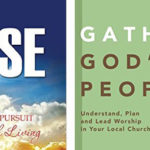The Chasm, A Journey to the Edge of Life by Randy Alcorn (Multnomah Books)

|
The Chasm is a quick-read allegory depicting the choices one makes throughout a lifetime. The book is written from a Christian perspective and abounds with symbolism from Satan as a deceiver to Christ the Redeemer.
Nick Seagrave is the main character who stood at the chasm and saw Charis, the city of light. He meets Joshua and is invited to join a group of travelers. Satan appears as a warrior who befriends Nick but then becomes the attacker in a battle for his soul. Christ is seen as a woodcutter who cuts down a tree and then offers his own life to become the bridge spanning the chasm between humanity and eternity.
The book is well written, with action and characters that draw the reader into the storyline. A non-Christian may miss some of the symbolism.
Great illustrations are powerful and add to the drama of the storyline.
Randy Alcorn weaves the story in such a manner that readers can see the choices and consequences of the characters’ decisions and then will feel compelled to contemplate their own choices and subsequent consequences. As an added bonus, the author has added chapter questions to help readers look into the symbolism of the book and explore their own Christian walk.
If you enjoy a good allegory, then The Chasm is a book to read.
Leo Smith, retired
Sign up for our weekly edition and get all our headlines in your inbox on Thursdays
executive director
Texas Baptist Men
Dallas
Bible: The Story of the King James Version, 1611-2011 by Gordon Campbell (Oxford)

|
This year marks the quatercentenary of the King James Version of the Holy Bible. In Bible: The Story of the King James Version, 1611-2011, Leicester University professor Gordon Campbell traces the history of the elegant and beautifully poetic translation of Scripture.
Campbell explains the efforts and sacrifices—some-times with their lives—of those who believed nonclergy, including women, should be able to read the Bible in their language. The author painstakingly details the myriad of scholars and meticulous process involved in translating and editing the King James Version. He describes various editions, including “The Wicked Bible” and “The Breeches Bible.”
Later chapters trace the influence of the Authorized Version through the 17th, 18th 19th, 20th and early 21st centuries. Campbell discusses such issues as the inclusion of the Apocrypha and the effect of the King James Version on literature. The author reminds readers the embargo of Bibles prior to the Revolutionary War led to their printing in America, and he decries today’s trend of the Bible being owned but not read. An extensive index, list of translators and revisers, and bibliography complete the book. In short, the author includes everything you ever wanted to learn about the King James Version but didn’t know to ask.
While Campbell’s history reflects scholarly research, he has penned a clear and concise volume that demonstrates the value of the King James Version of the Bible, not just for its beautiful words but for how its words changed the world through God’s word.
Kathy Robinson Hillman,
former president
Woman’s Missionary Union of Texas, Waco
The Gospel of John: When Love Comes to Town by Paul Long Metzger (InterVarsity Press)

|
How could anybody of a certain age resist a commentary on John’s Gospel with a subtitle taken from a song written by U2’s Bono and most famously performed by B.B. King?
As professor of Christian theology and the theology of culture at Multnomah Biblical Seminary, Paul Long Metzger knows both the New Testament and pop culture quite well. He draws deeply from that reservoir of knowledge for this commentary, the first in the “Resonate” series launched by InterVarsity Press. The expressed intent of the series is to offer a line of relevant commentaries that are biblical, theological, cultural and personal. Metzger succeeds admirably in blending popular culture, personal reflection and solid biblical theology.
One drawback of Metzger’s approach is that including pop culture references on practically every page quickly dates the book. At times, it wears a bit thin—like a middle-aged high school teacher trying too hard to prove to his students how cool he is by showing he knows more about their music and favorite movies than they do.
Metzger has not written a commentary for the ages, but he definitely has written one that resonates for the moment. Enjoy it while you still can.
Ken Camp, managing editor
Baptist Standard
Dallas















We seek to connect God’s story and God’s people around the world. To learn more about God’s story, click here.
Send comments and feedback to Eric Black, our editor. For comments to be published, please specify “letter to the editor.” Maximum length for publication is 300 words.